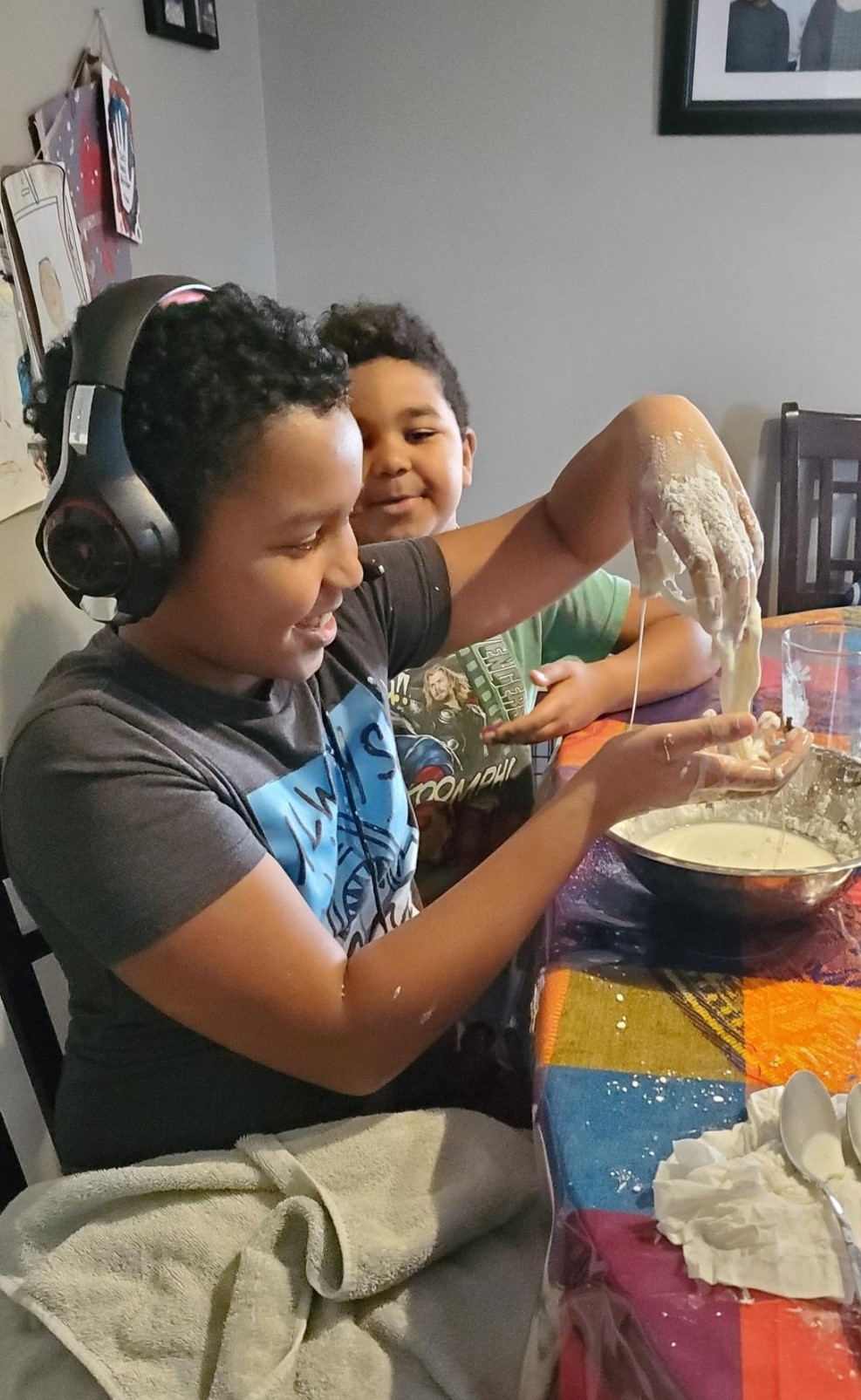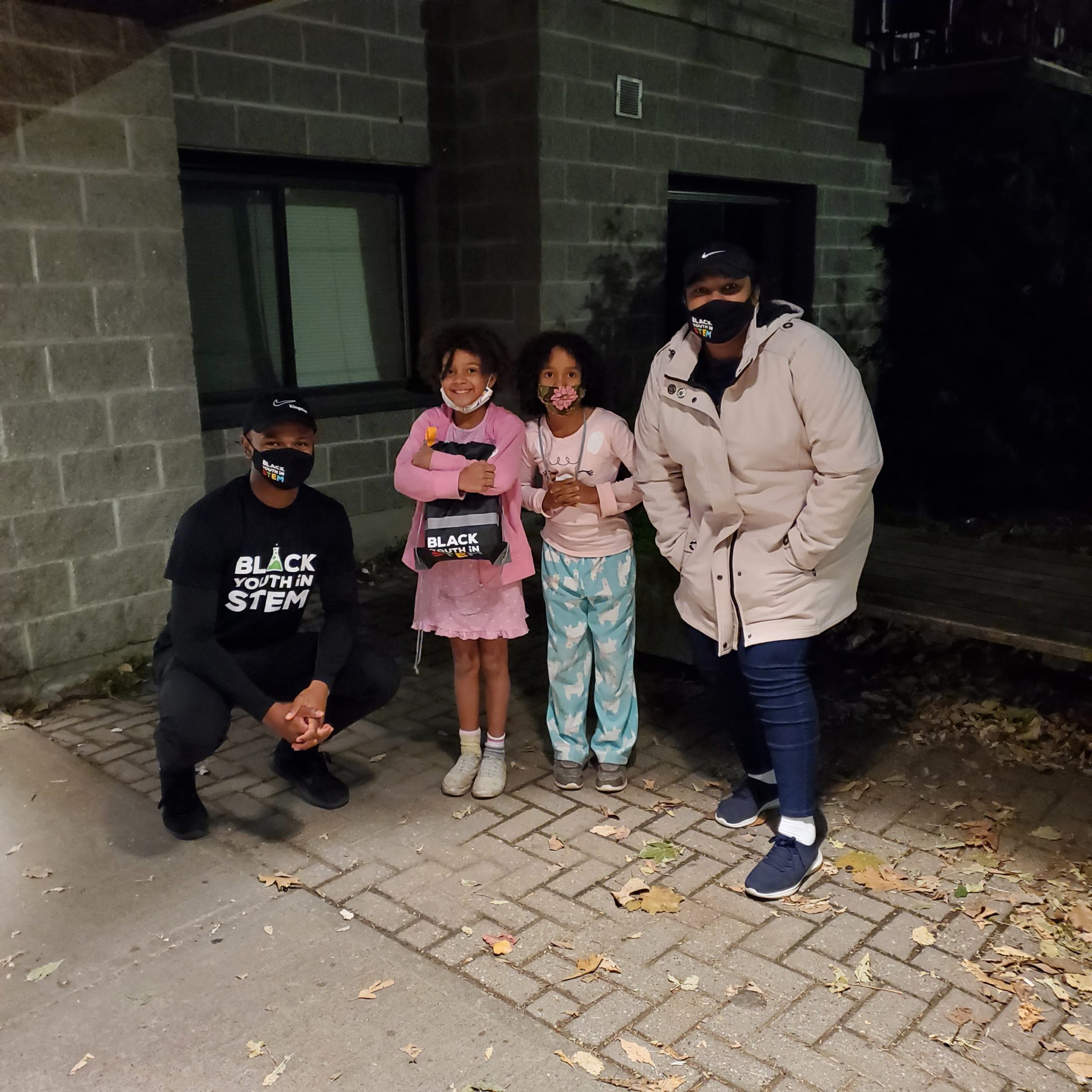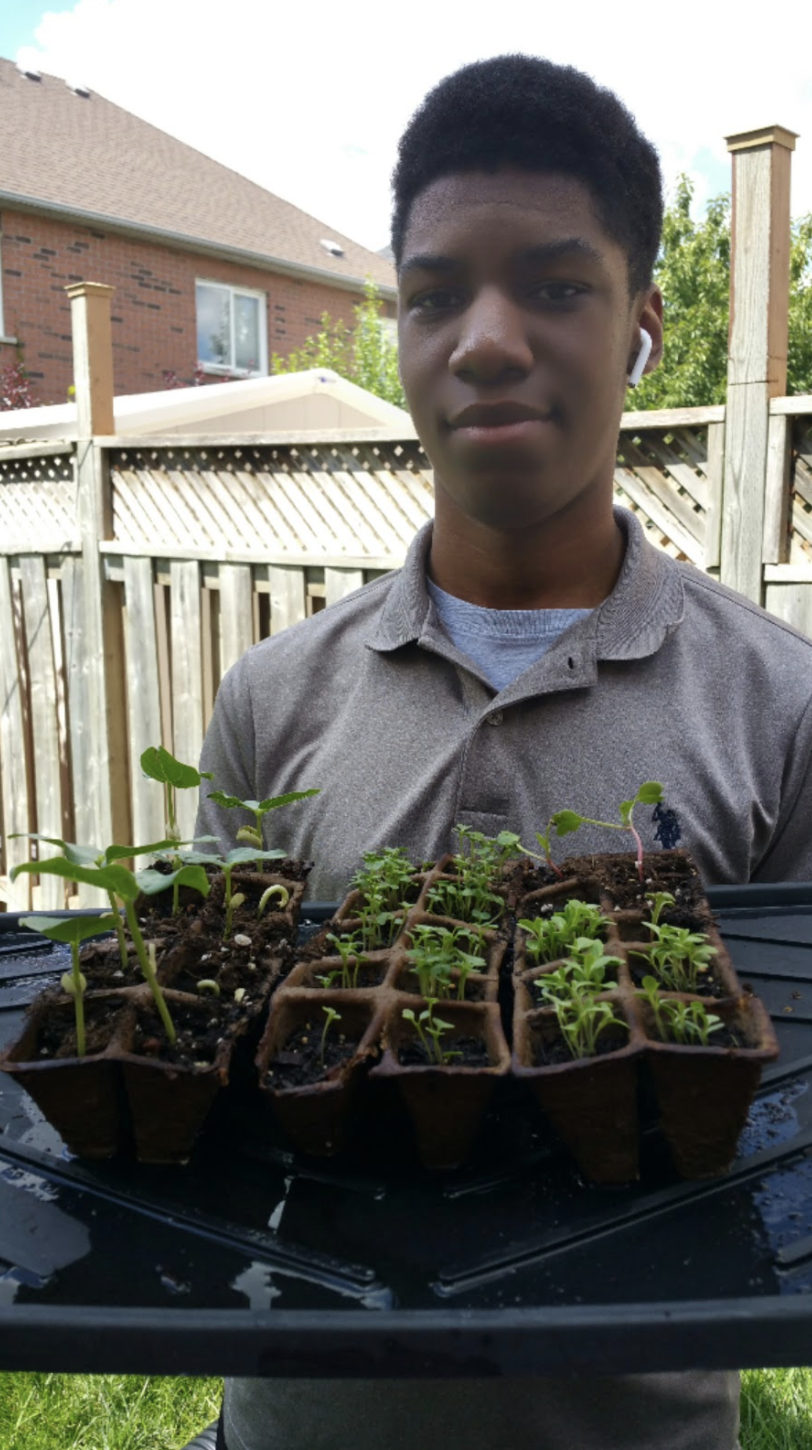Celebrating STEM programs paving the way for Black Youth in Canada
February 25, 2021
Role models and mentors play a pivotal role in all aspects of life. They are more than just people to look up to and admire. Role models motivate and inspire us by showing us what’s possible, and mentors build our confidence by unlocking our potential and allowing us to see ourselves in futures we might otherwise not have imagined. Together, they pave the way for future generations.
Studies have shown that exposure to role models in STEM can lead to greater interest in STEM education and professions by helping people feel a sense of belonging. Yet, for many Black students, there are few people in STEM who look like them to turn to for inspiration. And, even fewer programs that reflect their lived experience and connect them with peers.
Here are the stories of how two of Actua Network Members identified this gap and created programs that hope to pave the way for more Black youth in Canada to pursue STEM.
Black Youth in STEM Program
Actua Network Member: Aboriginal Access to Engineering, Queen’s University


On June 2, 2020, individuals and organizations worldwide participated in #BlackoutTuesday, a collective action to protest racism and police brutality in response to the murders of multiple Black Americans. The activities that day inspired similar movements in the days that followed. On June 10, an array of organizers from numerous universities, research bodies and scientific societies pledged to spend the day focused on issues of racial equality and inclusiveness in academia using the hashtag #ShutdownSTEM.
#ShutdownSTEM sparked a discussion at Queen’s University among the Aboriginal Access to Engineering team. As an all-Indigenous team of educators, combating anti-Black racism was something they felt compelled to do. They knew the historical struggles and current realities facing the Black community in Canada were similar to those faced by Indigenous communities. The team began asking themselves, “how can we create a Black-positive space where kids could meet each other and showcase Black excellence and achievement in STEM fields while having fun with hands-on STEM activities?”.
From there, the Black Youth in STEM Program was born.
The Aboriginal Access to Engineering team began consulting Black colleagues, parents and community members to gauge their thoughts on a Black-positive and culturally-empowered program for youth in Kingston, Ontario. The response was overwhelmingly positive.
With Actua’s support, the team piloted a program in Fall 2020 with 12 students from grades three to eight. Today, there are 20 student participants from grades one to eight registered in two streams of the program, according to age. The younger students are currently exploring chemistry while the older group are working on building rockets. Participants meet for 45-75 minutes each week via Zoom and use STEM kits, delivered to them by one of the program instructors who are Black engineering students at Queen’s. These instructors, who are role models themselves, also invite Black STEM professionals and post-secondary students to each session.
Beyond the curriculum itself, parents have expressed that one of the most valuable aspects of the program is their children’s ability to see themselves represented in STEM.
“Multiple parents have told us that their kids, who were typically shy in an academic setting, exemplified a sense of confidence they have rarely seen. I am so happy to be a part of this growth for these kids that has allowed them to realize their most confident selves. Actua’s support has allowed for exponential growth in the program, and we hope for this trend to continue in the months and years to come. Youth are the future, and we are so glad that Actua is investing in them.”
– Bryce Neil, Sci ’24, STEM Outreach Instructor.
The team hopes to begin face-to-face club meetings in the Fall of 2021 and maintain an online cohort that could expand beyond Kingston. But first, the team will meet later this month to launch their rockets. The Queen’s AISES Rocket Team will be there as mentors. They’re a team composed of Indigenous and Black engineering students who are currently designing a high-powered rocket for participation in the NASA-sponsored First Nations Launch Competition. It’s going to be a BLAST – pun intended!
BluePrint
Network Member: University of Toronto Engineering Outreach, University of Toronto

The University of Toronto (U of T) Faculty of Applied Science & Engineering prides itself on bringing together Canada’s top young minds to address global problems. To do this, they know it’s important to ensure all voices are at the table.
Over the years, it has become increasingly more apparent that Black student voices were missing in STEM. Black students are often discouraged from pursuing post-secondary studies in STEM due to barriers such as the imposter phenomenon, limited access to support and encouragement from authority figures, the cost of post-secondary studies and apathetic attitudes towards post-secondary education.
To remove some of these barriers and create pathways for Black students to pursue post-secondary education and careers in STEM, U of T Engineering Outreach created the Blueprint program – an academic-enrichment program designed for Black students in Grades 10 and 11.
There are four key components to the program:
- Academic Exposure
Mentors help participants understand what it’s like to study and work in STEM and introduce them to exciting and innovative STEM topics through a series of lectures, tutorials and activities. - Degree and Career Exploration
Guests from STEM-related careers act as role models by sharing their academic and career experience to demonstrate that the path is often non-linear. - Personal Development
Participants are offered mentorship sessions on various topics, including study skills, leadership development and health and well-being. - Networks and Community Building
Along with a strong focus on enriching curriculum, the program focuses on fostering a safe space for Black students to get inspired by gaining access to Black role models and build community by connecting with like-minded peers.
Through these key program areas, U of T Engineering Outreach hopes that more students feel a sense of belonging in STEM and gain the confidence and skills needed to pursue STEM education and careers.
Participants have expressed that the program has offered them a sense of community, while positively impacting their career planning and decision-making and self-esteem. U of T Engineering Outreach was thrilled to see some of the top grade 12 Blueprint participants apply to their faculty and are anxiously awaiting admission results!
“It was cool learning that our mentors engaged themselves on a global level by helping provide solutions to real-life problems. Learning about the various applications and programs they used in their lives was also something else I liked. I learnt more about the diversity of UofT and the importance to not be discouraged because of a feeling you “won’t fit in”. – Participant
While the program is committed to providing continued support to students navigating their journey from high school to post-secondary, their hope (post-pandemic) is to host over 50 students on campus to immerse them in university life. Students will live in residence for five weeks and attend classes where they will have access to labs and Makerspaces at U of T Engineering.
